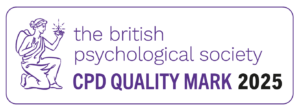Teaching Compassion in the Classroom: Why Train as a Compassion Focused Wellbeing Practitioner
Compassion Training for Teachers and Educators
In today’s classrooms, young people face increasing levels of stress, anxiety, self-criticism, and emotional overwhelm. As educators and wellbeing leaders, there’s a growing need to support not just academic progress but also the emotional and mental wellbeing of students.
Compassion Focused Wellbeing (CFW) training offers a powerful approach to address these needs.
Developed as an integrated blend of Compassion Focused Therapy (CFT), Mindful Self-Compassion (MSC), and mindfulness-based approaches like MBSR and MBCT, CFW equips teachers and facilitators with tools to help young people navigate life with greater kindness, resilience, and emotional awareness.
🌱 Why Train in Compassion Focused Wellbeing?
Becoming a CFW practitioner enables you to guide others through structured, evidence-based practices that build emotional strength, soften self-criticism, and support trauma-sensitive wellbeing. The training covers both 8-week and 4-week CFW programmes, tailored for adults, teens, and younger children.
This training is ideal for:
Mindfulness teachers
Educators and teaching assistants
Youth workers and school wellbeing leads
Therapists and mental health practitioners
Anyone supporting the wellbeing of young people
Upon qualification, you’ll join a network of licensed, accredited CFW teachers, supported by the UK College of Mindfulness Meditation. The course is accredited by respected organisations such as the Mindfulness Teachers Association (MTA) and the National Register of Psychotherapists and Counsellors (NRPC).

The Wellbeing Benefits of Compassion for Young People
Children and teenagers are at a unique developmental stage—navigating identity, social pressures, and emotional intensity. Compassion practices can help them:
1. Reduce Self-Criticism and Inner Shame
Teens often carry harsh inner voices. Compassion-based journalling and letter writing teach them to speak to themselves more kindly. Research indicates that self-compassion is associated with greater psychological health, including increased life satisfaction and emotional resilience, and decreased anxiety and depression 1.
2. Regulate Difficult Emotions
Using tools like the three emotional regulation systems (threat, drive, and soothing), students can better understand and manage their stress responses. This framework is central to Compassion Focused Therapy, which aims to help individuals develop and work with experiences of inner warmth, safeness, and soothing through compassion and self-compassion 2.
3. Build Resilience and Self-Worth
Rather than focusing on achievements or comparison, compassion practices help children value themselves from the inside out. Teaching compassion to kids enhances their emotional intelligence and fosters empathy, creating a foundation for nurturing relationships 3.
4. Strengthen Social Connection
Compassion for self naturally extends to others. Exercises in empathy, common humanity, and non-judgment help foster safer, more inclusive classrooms. Empathy and inclusivity are essential values that help promote a safe and inviting environment in which all students can learn effectively 4.
5. Improve Focus and Mental Health
Research shows that compassion-based mindfulness improves emotional wellbeing, reduces anxiety, and can enhance academic focus and motivation. Implementing social-emotional learning (SEL) programs in schools is associated with improved academic performance and reduced aggression 5.

What’s Included in the CFW Training?
The Compassion Focused Wellbeing training includes:
The 10 Attitudes of Compassion
The history and fundamentals of CFT, MSC, and the Mindfulness Now programme
Age-appropriate compassion practices for teens and children
Teaching the 4-week CFW programme for young people
Trauma-informed teaching & understanding “backdraft”
Creative tools: visualisation, journalling, movement, and touch
Compassionate boundaries and self-care as a practitioner
Support in leading both group sessions and 1-to-1 work
For more details, visit the Compassion Focused Wellbeing Teacher Training page.
Compassion in Schools Isn’t a Luxury—It’s a Lifeline
In a world where children are growing up with increasing pressure and emotional challenges, compassion is no longer a “nice-to-have”—it’s a core life skill.
Training in Compassion Focused Wellbeing allows you to bring these life-changing tools into the classroom, supporting emotional safety, growth, and connection in every lesson.
Ready to Make a Difference?
Learn more about CFW Teacher Training and how you can become a licensed Compassion Focused Wellbeing practitioner with the UK College of Mindfulness Meditation.
The children and teens you work with may never forget the maths you taught—but they’ll always remember how safe and seen they felt in your presence.




